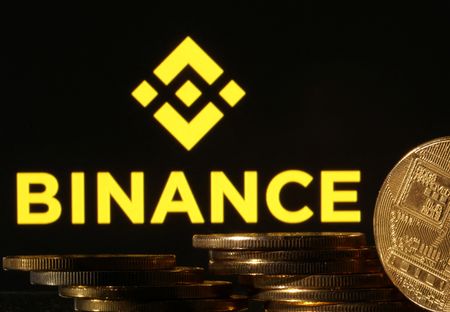By Rachna Uppal
ABU DHABI (Reuters) -Binance Chief Executive Changpeng Zhao said on Wednesday there was significant interest from industry players in a recovery fund his company plans to launch to help crypto projects facing a liquidity squeeze following the collapse of rival FTX.
Speaking at a conference in Abu Dhabi, Zhao said he doesn’t have an exact figure in mind for the size of the recovery fund.
“There are players that have strong financials and we should band together; we’ve got significant interest so far,” he said, declining to name other exchanges or institutions at this point.
Zhao said Binance has healthy reserves but he did not say how much the company would contribute to the fund.
“Crypto doesn’t need saving,” Zhao said. “Crypto will be fine.”
More details concerning the fund will be available over the next two weeks, Zhao said.
The Binance boss said on Monday such a fund would help “reduce further cascading negative effects of FTX”.
The crypto industry is reckoning with the collapse of Sam Bankman-Fried’s rival exchange FTX, which filed for bankruptcy on Friday after users rushed to withdraw $6 billion in crypto tokens in just 72 hours.
Binance said in a statement on Wednesday it received Financial Services Permission (FSP) – a licence to provide custody services to professional clients – from the Financial Services Regulatory Authority of Abu Dhabi Global Market, the emirate’s financial free zone.
“Obtaining this license is a pivotal step in the growth of Binance in Abu Dhabi, and a reflection of the city’s progressive stance on virtual assets,” Dominic Longman, senior executive officer at Binance Abu Dhabi, said in a statement.
The United Arab Emirates has emerged as a crypto hub as several of the world’s big crypto firms have set up in commerce hub Dubai, including Binance, which is helping Dubai develop regulations for the industry in the city.
Kraken said in April it was the first global virtual assets exchange group in the United Arab Emirates to receive a full financial license from ADGM.
(Reporting by Rachna Uppal; Writing by Lina Najem and Yousef Saba; Editing by Tom Hogue)

